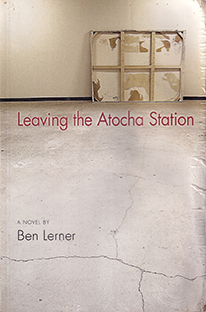
10:04
En Anglais – Ben Lerner’s first novel, Leaving the Atocha Station, was hailed as “one of the truest (and funniest) novels . . . of his generation” (Lorin Stein, The New York Review of Books), “a work so luminously original in style and form as to seem like a premonition, a comet from the future” (Geoff Dyer, The Observer). Now, his second novel departs from Leaving the Atocha Station’s exquisite ironies in order to explore new territories of thought and feeling. // In the last year, the narrator of 10:04 has enjoyed unexpected literary success, has been diagnosed with a potentially fatal heart condition, and has been asked by his best friend to help her conceive a child, despite his dating a rising star in the visual arts. In a New York of increasingly frequent super storms and political unrest, he must reckon with his biological mortality, the possibility of a literary afterlife, and the prospect of (unconventional) fatherhood in a city that might soon be under water. // In prose that Jonathan Franzen has called “hilarious . . . cracklingly intelligent . . . and original in every sentence,” Lerner captures what it’s like to be alive now, when the difficulty of imagining a future has changed our relation to our present and our past. Exploring sex, friendship, medicine, memory, art, and politics, 10:04 is both a riveting work of fiction and a brilliant examination of the role fiction plays in our lives.
Leaving the atocha station
Adam Gordon is a brilliant, if highly unreliable, young American poet on a prestigious fellowship in Madrid, struggling to establish his sense of self and his relationship to art. What is actual when our experiences are mediated by language, technology, medication, and the arts? Is poetry an essential art form, or merely a screen for the reader’s projections? Instead of following the dictates of his fellowship, Adam’s “research” becomes a meditation on the possibility of the genuine in the arts and beyond: are his relationships with the people he meets in Spain as fraudulent as he fears his poems are? A witness to the 2004 Madrid train bombings and their aftermath, does he participate in historic events or merely watch them pass him by? In prose that veers between the comic and tragic, the self-contemptuous and the inspired, Leaving the Atocha Station is a portrait of the artist as a young man in an age of Google searches, pharmaceuticals, and spectacle.



